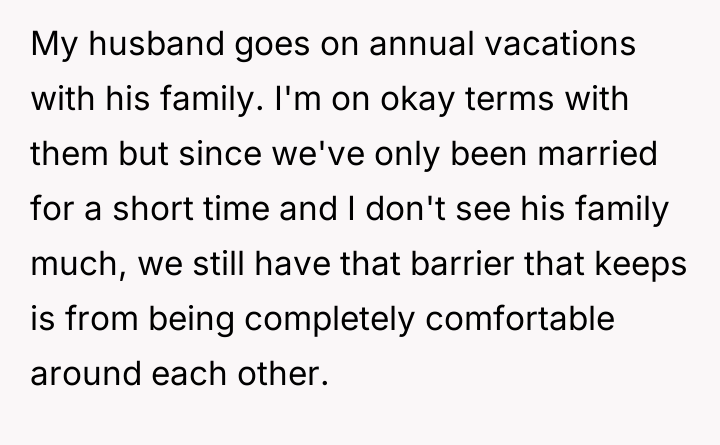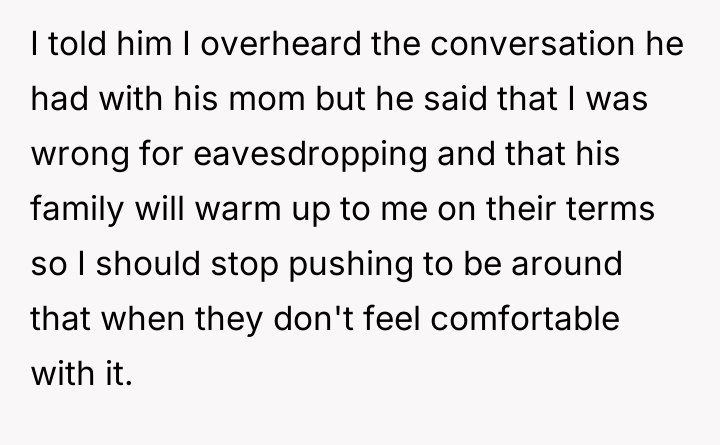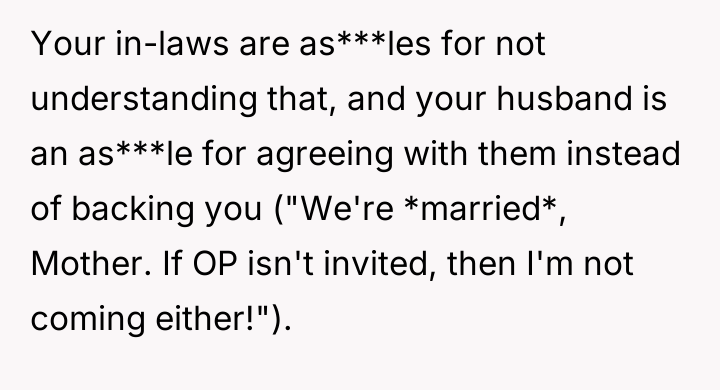AITA for going home after I overheard my husband say he didn't want to bring me with him to his family vacation?
Beneath the sunny facade of a family vacation, a quiet storm brews. A new wife, hopeful and eager to bridge the gap between her and her husband's family, steps into unfamiliar territory, only to be met with whispered doubts and cold exclusion. The words she overhears cut deeper than she expected, unraveling the fragile thread of acceptance she clung to.
In that moment, the illusion of warmth shatters, revealing the true distance that separates her from the people she longed to call family. The pain of betrayal is raw and immediate, a stark reminder that sometimes, the hardest battles are fought not in distant lands, but in the hearts of those meant to love us most.









Subscribe to Our Newsletter
As renowned psychologist Dr. John Gottman explains, ". . . there is no relationship that doesn’t have conflict. Conflict is inevitable, but so is the opportunity to repair." The OP's primary motivation for attending the vacation was to foster connection with her husband's family, an effort that was undermined by the covert criticism she overheard. The exchange between the OP's husband and mother-in-law (MIL) reveals a significant issue of boundary setting and unmanaged negative feelings within the family structure. The husband's statement that the OP was 'pushy' indicates he may have agreed to her attendance out of obligation rather than genuine desire, and he failed to defend her when his own mother minimized her presence. The OP's subsequent action of leaving was an extreme emotional response driven by a perceived betrayal and insult, compounded by the fact that she felt she had been actively contributing (cleaning, cooking) only to be viewed as an inconvenience. The husband's reaction, labeling her departure as 'disrespectful and juvenile' while simultaneously dismissing her valid reason for leaving (overhearing the comments), demonstrates poor conflict management and a failure to validate her feelings. His focus on the 'bad impression' suggests prioritizing external appearances over addressing the core emotional injury. A more constructive approach would have involved the husband acknowledging the pain caused by his and his mother's words, validating her right to feel upset, and then collaboratively discussing the timing and method of her departure. Moving forward, the OP needs to establish clear, respectful boundaries about acceptable communication, and the couple must practice 'repair attempts' to rebuild trust damaged by this incident.
THIS STORY SHOOK THE INTERNET – AND REDDITORS DIDN’T HOLD BACK.:
The thread exploded with reactions. Whether agreeing or disagreeing, everyone had something to say — and they said it loud.
















The original poster (OP) felt deeply hurt and invalidated after overhearing negative comments from her mother-in-law and husband regarding her presence on the family vacation, leading her to abruptly leave. Her action of leaving was a response to feeling unwanted and unappreciated, directly conflicting with the husband's expectation that she should have remained and managed the situation without immediate confrontation or departure.
Was the OP justified in leaving immediately upon hearing her in-laws and husband discuss her presence negatively, or was her departure an overreaction that damaged the potential for future family relations? The debate centers on whether preserving one's dignity outweighs the immediate preservation of harmony in a new marital relationship.